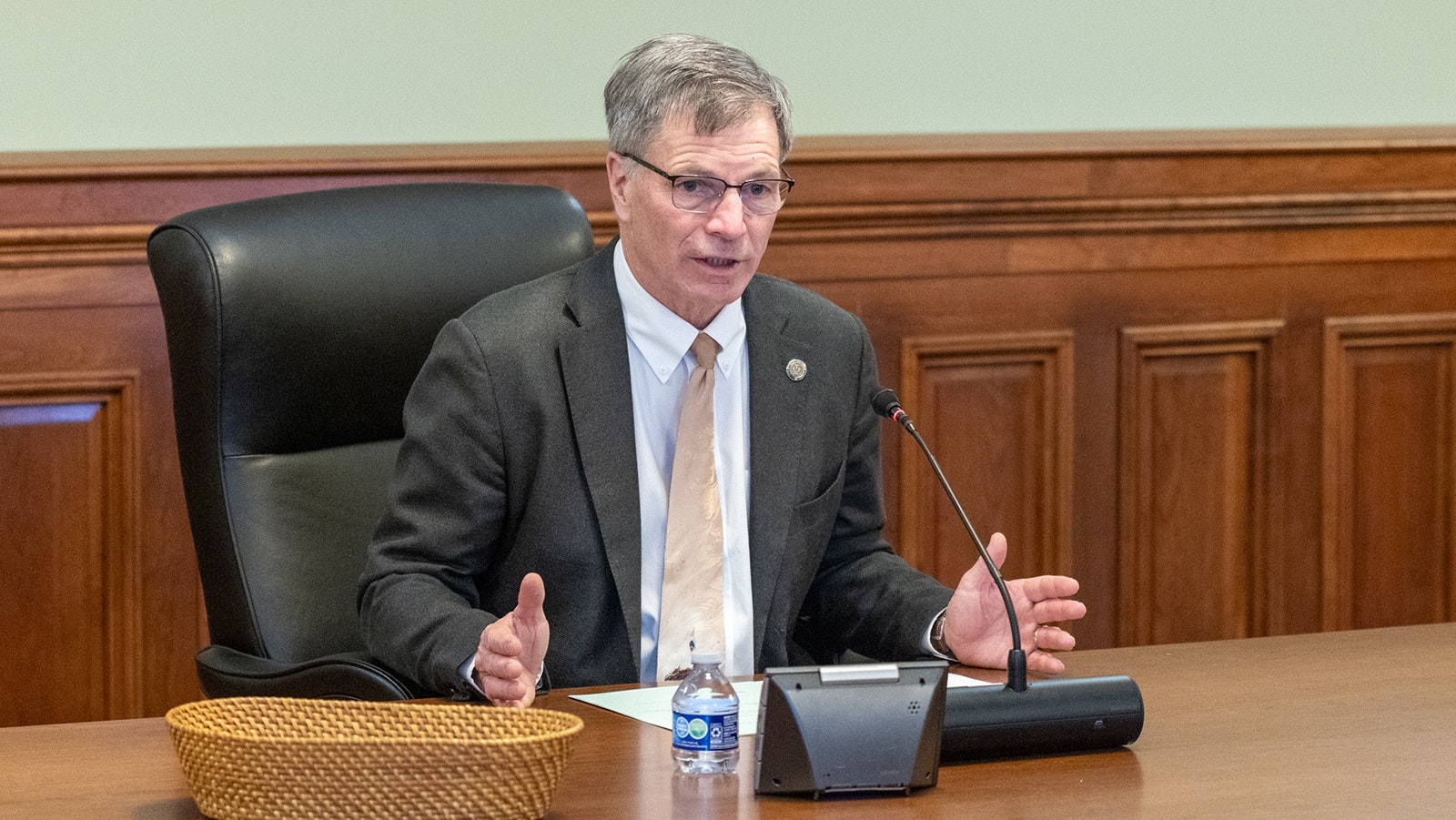Calling it a threat to Wyoming’s ability to generate mining revenue on state lands, Gov. Mark Gordon vetoed a bill Monday that would have allowed certain mining operations to have less state regulation.
Gordon said he supported Senate Enrolled Act 62 as originally written, but that amendments added to the bill would have given local counties authority over state lands.
“Ultimately, the flaws of Enrolled Act No. 62 as it has arrived on my desk outweigh its benefits,” Gordon writes in his veto letter.
Senate File 44 was designed to reduce regulation on non-coal mining operations in Wyoming. The bill also intended to address existing bonding deficiencies for issuing permits for limited mining operations (LMOs) by updating bonding requirements to take into account inflation and other withdrawals from reclamation funds.
LMOs in Wyoming are now limited to various kinds of sand, gravel and rock quarries operating on 15 acres of land or less. SF 44 would have expanded that to all non-coal minerals including rare earths, essentially making it easier for small-scale energy operations to meet the lower regulation criteria offered for LMOs, and easier to make a transition to full permitting if they chose to expand in the future.
State Rep. Donald Burkhart, R-Rawlins, chairman of the House Minerals, Business and Economic Development Committee, said he was disappointed by the governor’s veto of his committee’s bill, but also saw some legitimacy to it. He said the amendments added to the bill took away from its original purpose.
“I’m disappointed, but there were some legitimate legal issues that he raised,” Burkhart said.
If the bill had passed, the only requirements needed to begin mining from the state would be that the operator receive permission to mine from the landowner and notify the Department of Environmental Quality and the inspector of mines within the Department of Workforce Services where they would be mining.
But Burkhart said an amendment added to the bill by Rep. Steve Harshman, R-Casper, on its third reading in the House altered the bill so that it gave counties some control over state mining and thus primacy over state lands.
“Which you can’t have,” Burkhart said.
Casper Gravel Pit
There were a number of late amendments made to the bill specifically targeting development of an exploratory license that had been previously granted for a contentious gravel pit located on state lands southwest of Casper.
These amendments were added for the purpose of stopping further development of an exploratory license for the gravel pit.
Gordon said these amendments would have done nothing to resolve the gravel pit situation.
“Statutory changes are not the proper place to address specific concerns for individual operations,” Gordon wrote in his veto letter. “While Wyoming seeks to manage her state lands cooperatively with counties and their land use plans, the state is not constrained by them. State lands and minerals are important to our state’s economic well-being and need to be treated the same as other lands in the state.”
Harshman said he was disappointed by the governor’s veto.
“It’s unfortunate, as this lease was granted on a consent list with no public comment and now with this veto they (Gordon and the other top state elected officials) are not going to give the public any voice and have basically cut our people out of this process," he said. “Very disappointing.”
Other Consequences
Gordon said the bill also would have had constitutional consequences as to how state lands are managed, and limited Wyoming’s ability to generate revenue from state lands and take management and decision-making authority away from the state.
The bill would have implemented an increased setback requirement of 500 feet on state lands and a new requirement for counties to review and issue conditional use permits. LMOs on private or federal lands only have to adhere to a 300-foot requirement, so Gordon said requiring the additional 200-foot setback for state land mining would make it uncompetitive.
“State lands and minerals are important to our state's economic well-being and need to be treated the same as other lands in the state,” Gordon writes.
Burkhart said the Minerals Committee will take the bill back up during the upcoming interim session.
Five Bills Signed Into Law
Gordon also signed five bills into law Monday.
- Senate Enrolled Act 36 will help Wyoming judges freeze passports and issue other orders to block child abductions by parents or guardians.
- Senate Enrolled Act 36 will authorize natural or adoptive parents or legal guardians to change a minor child's name without giving public notice of the name change.
- Senate Enrolled Act 44 will amend the Wyoming Stable Token Act to allow for investments in cash and government securities, and authorize the Wyoming Stable Token Commission to issue different types and amounts of stable tokens and to contract with financial service providers.
- Senate Enrolled Act 45 will provide an exception to special district bond elections for improvement and service districts and water and sewer districts.
- Senate Enrolled Act 31 provides a process by which special districts that have been required to dissolve for audit report noncompliance may reinstate the special district or stop the dissolution.
Leo Wolfson can be reached at leo@cowboystatedaily.com.





